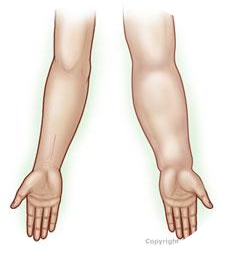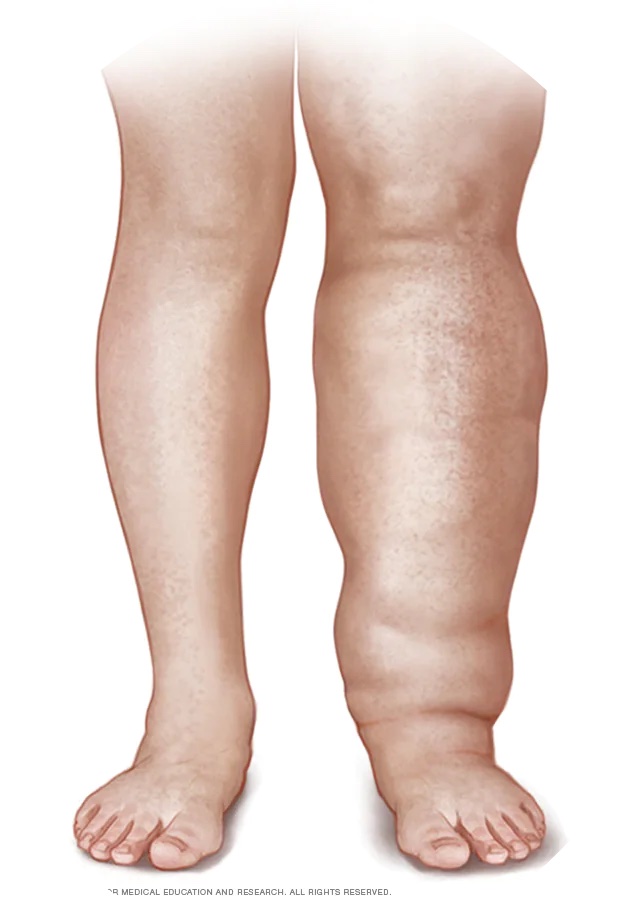Lymphedema, as described by the National Cancer Institute is a poorly understood, underestimated, and under researched complication of breast cancer and its treatment. Patients often don’t know they’re at risk for lymphedema. Practitioners are unsure how to predict, diagnose or treat it. Pain, swelling and related infections can happen months, years or even decades after breast cancer surgery and treatment.
The lymphatic system is, in essence, the body’s cell waste filtering system. They filter bacteria, viruses, and other disease-causing agents circulating in the lymphatic system. They also remove excess fluids from body tissues. When this process is not able to take place, the lymph fluid is not drained, and swelling occurs. Post breast cancer surgery, these lymph nodes are blocked or damaged or removed due in part to tumors, surgery, or radiation. When cell waste starts to pile up, and there are no lymph nodes to get rid of it, the limbs begin to swell, infection can occur, and problems arise. Fortunately, lymphedema can be managed if caught early or if treatment is consistent. Listen to your body and the subtle symptoms and hopefully you can nip the condition in the bud. Lymphedema from breast cancer usually starts with the arm feeling heavy and swelling occurs. Your arm may ache, become less flexible or even itch.
Many breast cancer patients often develop lymphedema, mostly due to the radiation or surgical removal of lymph nodes. This can occur anywhere from a couple of weeks to eleven years post-surgery Sequential intermittent pneumatic compression pumps and sleeves/garments are an effective way to treat lymphedema. Lymphedema treatment, employing pneumatic compression pumps, has proven to be successful in most patients. Initially, compression sleeves and MLD (manual lymphatic drainage) may be successful however, over time, they often are not effective enough. Many insurance companies will cover the cost of MLD only for a specified amount of time.
The compression pump and sleeve /garment can be used in the comfort of your home at a time that is convenient for you. Without compression therapy, lymphedema can flourish and get worse. Cellulitis, a bacterial infection, is a serious condition that can occur if lymphedema is not treated. A patient’s everyday lifestyle can be greatly improved by using a pneumatic compression pump. At Total Compression Pumps, we pride ourselves on service. The quality of sequential intermittent pneumatic compression pumps and sleeves provided is second to none.
From your first contact with Total Compression Pumps, throughout the entire process of ordering, working with your insurance carrier, and expediting the delivery of your device, you’ll be in good hands. We will gladly answer your questions.
We do care about you and your well-being.
Call us today @ 1-800-854-0335



